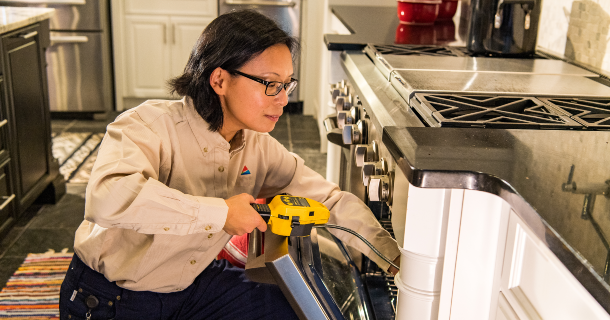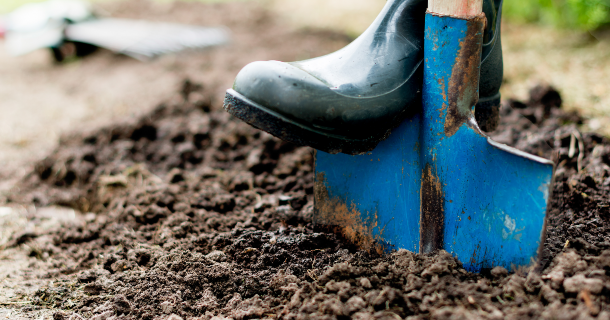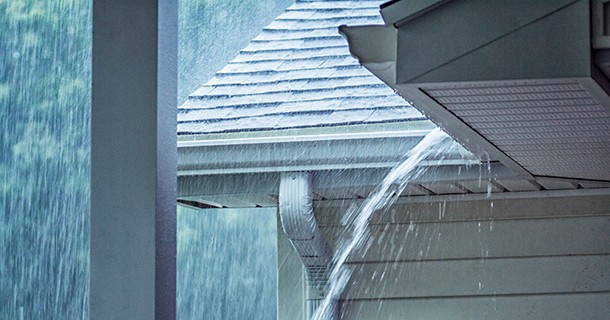For Immediate Assistance: Call our 24-hour Emergency Number 877.572.3342
Smell Gas?
Natural gas is a colorless, odorless fuel. As a safety precaution, we add a chemical odorant called mercaptan that gives natural gas an odor often associated with rotten eggs. This distinctive scent allows you to smell a potential leak if it occurs. Always leave if you suspect a leak. Natural gas is non-toxic, lighter than air and displaces oxygen. In severe cases, if not used properly, it may lead to asphyxiation, and has a risk of ignition near a spark. It's important to know that some people may not be able to detect the odorant because they have a diminished sense of smell, known as olfactory fatigue, or because the odor is being masked by other odors in the area. Certain conditions may cause the odorant to diminish so that it is not detectable. Never try to find the leak yourself.
LOOK for blowing dirt, discolored vegetation or continued bubbling in standing water.
LISTEN for a hissing or roaring noise near a natural gas appliance or line.
SMELL for the distinctive, rotten-egg odor associated with natural gas. You should act any time you detect even a small amount of this odor in the air.
LEAVE the area immediately and move a safe distance away from the potential leak, while avoiding any action that may cause sparks. Do not try to identify the source or stop the leak yourself.
AVOID using any sources of ignition, such as cell phones, cigarettes, matches, flashlights, electronic devices, motorized vehicles, light switches or landlines, as natural gas can ignite from a spark or open flame, possibly causing a fire or explosion. Natural gas is non-toxic, lighter than air and displaces oxygen. In severe cases, if not used properly, natural gas can also lead to asphyxiation.
CALL 911, then call Virginia Natural Gas at 877.572.3342 once you are out of the area of the suspected leak and in a safe place. Stay away until emergency personnel and/or Virginia Natural Gas indicate it is safe to return.
Carbon Monoxide: Signs, Symptoms and Safety
Carbon monoxide is an invisible, odorless gas that can cause illness and even death when not properly vented by your furnace or appliances. Carbon monoxide comes from the incomplete combustion of common fuels such as heating oil, gasoline, coal, wood, charcoal, kerosene, propane and natural gas. When properly operated and maintained, natural gas heating equipment and appliances are safe and efficient. If not properly operated and vented, carbon monoxide could build up in your living space creating a dangerous situation.
Carbon Monoxide Detectors
Smoke and carbon monoxide detectors should be tested frequently and replaced every 10 years. There are many smoke alarms and carbon monoxide detectors on the market. Regardless of brand, the detector you purchase should meet current UL standards and must be installed and operated according to the manufacturer’s instructions. Homeowners and landlords are required by law to install carbon monoxide (CO) detectors.
Every dwelling should be equipped with at least one approved carbon monoxide alarm, in operating condition, withing 15 feet of every sleeping room. This alarm may be battery operated, plug-in with battery back-up or wired into the home's AC power with a secondary battery back-up. Approved alarms bear the label of a nationally recognized testing laboratory and comply with the most recent standards of the Underwriters Laboratories or the Canadian Standard Association.
Improper Venting Risks
Improper venting may be caused by a number of problems - some of which may not be easily seen, making it important to have your equipment checked and serviced regularly.
- Chimneys or vents blocked by leaves, bird nests, debris or heating residue
- Malfunctioning or wrongly installed equipment
- Heating equipment improperly enclosed by paneling or other structures
- Improperly vented equipment
Signs and Symptoms of Carbon Monoxide
- Stuffy or stale air
- Very high humidity
- Fallen soot from your chimney or draft hood
- A hot draft coming from your draft hood
If carbon monoxide is present, you may experience carbon monoxide poisoning. While carbon monoxide poisoning is rare, be aware of the following symptoms. If symptoms are suspected, quickly exit the house to fresh air - taking all people, animals and pets with you - and call for help. Do not reenter the home until it has been deemed safe to do so.
- Headaches
- Dizziness and weakness
- Nausea and vomiting
- Stinging eyes
- Sleepiness
- Heart flutters
Carbon Monoxide Safety Tips
- Install a carbon monoxide detector.
- Keep the area surrounding your gas appliances clear from clutter or trash.
- Have an HVAC technician check your heating equipment annually. Use our Find a Contractor tool for help finding a certified technician to inspect equipment or fix issues.
Audio of our Safety Messaging
Virginia Natural Gas has partnered with Virginia Voice, a nonprofit organization that provides information services to more than 5,000 visual and hearing-impaired individuals throughout Central Virginia and the Hampton Roads area. As part of our partnership, we can deliver important safety messaging, including 811 information, to the Virginia Voice audience through recorded public service announcements.


